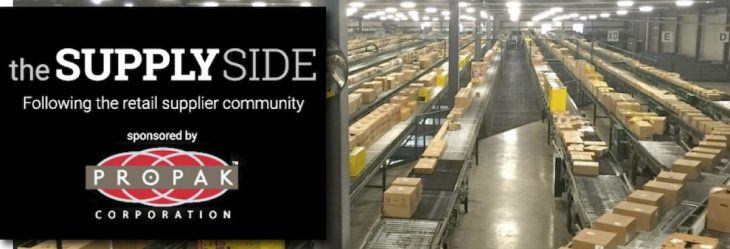The Supply Side: Retailing resurrection in post-COVID era must be purpose-driven
by November 4, 2020 3:17 pm 867 views

Retail is in the midst of a transformation. Apex players like Amazon and Walmart are building out eco-systems that will continue to drive consumers to stores and service opportunities in the post-pandemic world, according to Doug Stephens, CEO of Retail Profit, a consulting and marketing firm based in Toronto.
Stephens recently spoke at a virtual retail summit held at Texas A&M, and he shared insights into purpose-driven retail’s importance in the future. He said changing consumer behaviors will require retail brands to redefine their purpose, which doesn’t mean just revamping the mission statement.
“Amazon may have your checking account, Walmart may be your healthcare provider or either could have your auto and home insurance in a post-pandemic world,” Stephens said.
He explained that retailers could be less reliant on making money from retail sales and devote more energy to services with the growth of marketplaces. Walmart and Amazon have built eco-systems that will serve to make the large retailers even more powerful, he said.
To survive in this type of transformation, retailers must answer questions around purpose or risk becoming deadwood in the next few years. Amazon, Walmart and Alibaba will only get bigger and scarf up any of the spoils left behind.
“Who are we, and what purpose do we serve for customers?” he noted as the question all retailers and brands must tackle as consumers have turned to online shopping.
He encourages retailers to answer those questions about purpose and then define it to customers looking to see why they need certain brands and retailers. Stephens highlighted 10 retail brands that are doing this. He said every retailer would need to fall into a real purpose category to stay relevant when the world moves past COVID-19. Stephens said defining purpose requires new positioning. He said brands and retailers would have to tackle this if they fend off the top players from taking future market share.
He gives Nike good marks as a “storyteller brand” as it seeks to answer the question, “Who inspires me?” Stephens said consumers buy their shoes not because they are better than the competition, but Nike tells powerful stories, and consumers wear that brand as an emblem. He said there will always be room for more storyteller brands in the future.
Patagonia has found continued success in part because of what it stands for. The outdoor gear brand has a loyal following and is outspoken on social justice. The company also gives 1% of sales back to saving the planet. Stephens said this exemplifies an “activist brand” because it answers the question about who best aligns with consumer values.
He highlighted a retail concept in Texas (Plano and Austin) known as Neighborhood Goods as a brand that answers where consumers can find unique items under one roof. The idea is about showcasing a carefully curated selection of brands that changes with the season and customer demands. Neighborhood Goods is known as a “tastemaker retailer,” and Stephens said this concept is suited to flourish in the post-pandemic world.
“Retailtainment”— retail marketing as entertainment — is not dead, and Stephens said consumers are always asking where they can go to have fun. He said CAMP stores answer that question. CAMP is a toy store, but not in the traditional sense, as only 25% of its revenue comes from toy sales. The store provides a black box theater experience for kids in 85,000 square feet of space.
Stephens said CAMP is an “artist brand” that provides a fun experience.
Stephens said the use of artificial intelligence is helping many brands predict demand. But consumers will appreciate those brands that save them time and effort for things they want to purchase. Clothing curator Stitch Fix is doing just that. Stephens said this exemplifies a “clairvoyant brand” that provides consumers with exemplary service with a surprise factor since the items are selected for customers by a fashion expert.
Customer service will continue to be necessary to shoppers, and that can be accomplished in different ways. He said Costco has terrific customer service, and Nordstrom and Ulta also have exemplary customer service online and in-stores that are highly personalized, making them “concierge retailers.”
There are also “oracle brands” like Hodinkee, which has become an authority on watches and timepieces. That was born out of a love for watches but has developed into a growing retail brand that now includes an editorial magazine devoted to watches, informational blogs and podcasts for a curated audience interested in timepieces. Stephens said the brand set up a marketplace for vintage and new watches, and items listed are usually sold in a matter of minutes. He said “oracle brands” are where consumers can go for the best advice.
Other purpose categories include “engineer brands” like Apple and Dyson, where most of the attention is on product design. These brands also have a loyal following because of their unique and expertly designed products, Stephens said.
Some brands manage to create moats around themselves and control a specific category or market. Luxottica, Sunglass Hut owner, is seen as one of the “gatekeeper brands” because it owns 80% of the major eyewear stores in its global portfolio. Stephens said Luxottica answers the question of where shoppers can find eyewear.
Warby Parker is known as a “renegade brand” and has a loyal following. The eyewear retail brand sought to show consumers there is a better way than the traditional. Stephens said Warby Parker is disruptive and answers the question, “is there a better way?”
Stephens said retailers remain challenged by the pandemic, but those who survive will need to seek out what question they answer for shoppers.
EDITOR’S NOTE: The Supply Side section of Talk Business & Politics focuses on the companies, organizations, issues and individuals engaged in providing products and services to retailers. The Supply Side is managed by Talk Business & Politics and sponsored by Propak Logistics.
